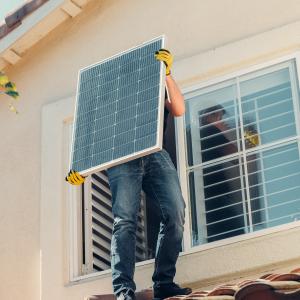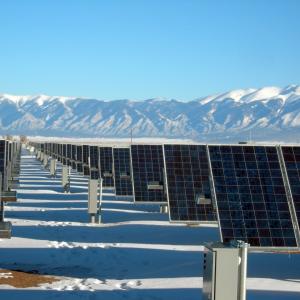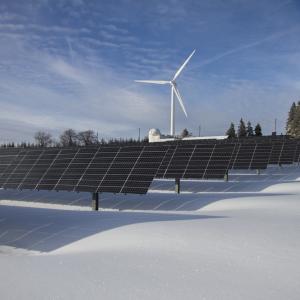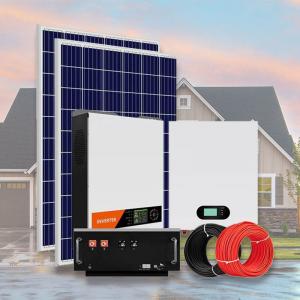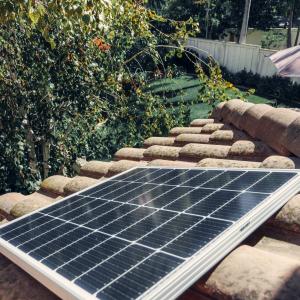What Is A Solar Panel?
Solar energy begins with the sun. Solar panels (also known as "PV panels") are used to convert light from the sun, which is composed of particles of energy called "photons", into electricity that can be used to power electrical loads.Solar panels can be used for a wide variety of applications including remote power systems for cabins, telecommunications equipment, remote sensing, and of course for the production of electricity by residential and commercial solar electric systems.
A Short History of Solar Panels
The development of solar energy goes back more than 100 years. In the early days, solar energy was used primarily for the production of steam which could then be used to drive machinery. But it wasn't until the discovery of the "photovoltaic effect" by Edmond Becquerel that would allow the conversion of sunlight solar electric energy. Becquerel's discovery then led to the invention in 1893 by Charles Fritts of the first genuine solar cell which was formed by coating sheets of selenium with a thin layer of gold. And from this humble beginning would arise the device we know today as the solar panel.
Russel Ohl, an American inventor on the payroll of Bell Laboratories, patented the world's first silicon solar cell in 1941. Ohl's invention led to the production of the first solar panel in 1954 by the same company. Solar panels found their first mainstream use in space satellites. For most people, the first solar panel in their life was probably embedded in their new calculator - circa the 1970s!

How Do Solar Panels Work?

The Benefits of Solar Panels
Besides the fact that solar panels make it possible to live off-grid, perhaps the greatest benefit that you would enjoy from the use of solar power is that it is both a clean and a renewable source of energy. With the advent of global climate change, it has become more important that we do whatever we can to reduce the pressure on our atmosphere from the emission of greenhouse gases. Solar panels have no moving parts and require little maintenance. They are ruggedly built and last for decades when porperly maintained.
Last, but not least, of the benefits of solar panels and solar power is that, once a system has paid for its initial installation costs, the electricity it produces for the remainder of the system's lifespan, which could be as much as 15-20 years depending on the quality of the system, is absolutely free! For grid-tie solar power system owners, the benefits begin from the moment the system comes online, potentially eliminating monthy electric bills or, and this is the best part, actually earning the system's owner additional income from the electric company. How? If you use less power than your solar electric system produces, that excess power can be sold, sometimes at a premium, to your electric utility company!
There are many other applications and benefits of using solar panels to generate your electricity needs - too many to list here. But as you browse our website, you'll gain a good general knowledge of just how versatile and convenient solar power can be.

